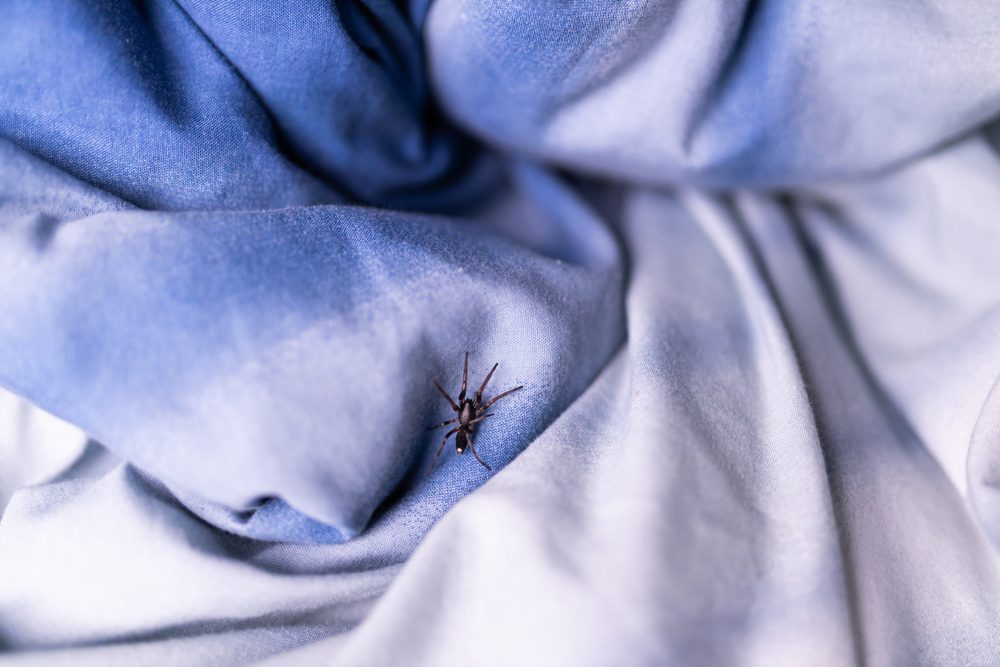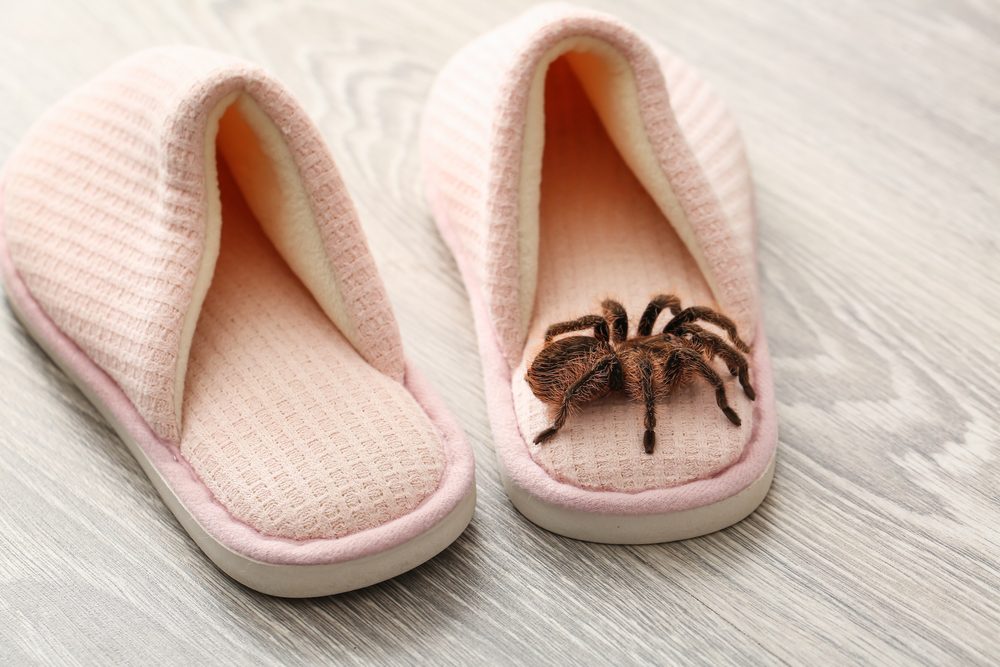Whether you’re really arachnophobic or simply hate insects in general, no one really loves the idea of coming across a spider in their home.
Naturally, skilled hunters are very good when it comes to cutting back on pesky bugs such as mosquitoes and flies in your garden. However, the fact that they play their part in being pretty much a great neighbor doesn’t really bring a lot of comfort when they’ve taken up residence in your living space.
And this goes even more if they’re venomous. Luckily, it’s still very possible to keep your home as spider-free as possible with minimal effort. Here’s how you might be inviting spiders into your home and what you can do about it!

Using too much outdoor lighting
At the very least, we might use exterior lighting to help pull into the driveway and then walk to the front door after night sets. However, this could potentially draw in spiders who might be looking for their next meal, especially if your house becomes a bright beacon at night.
Spiders are deeply attracted to light, so outdoor fixtures could potentially draw them in from the outside. If you have exterior lights that attract lots of bugs, this is probably a contributing factor to higher spider populations in and around the house.
You could consider switching to yellow-tinted lights or even using motion-sensor lights that might activate only when needed.
Having cracks or crevices in your wall
All homes need regular upkeep, from making sure the roof isn’t leaking all the way to checking in on the status of your foundation. At times, even running a rapid inspection could reveal wear and tear you didn’t know about.
There are many reasons why you should patch up those difficult-to-spot holes: it will keep your home warmer, and it will also keep spiders outside where they belong.
One of the less obvious ways in which you could be inviting spiders is by having cracks or crevices in walls and windowsills. Spiders might be able to crawl through those tiny gaps, which would give them easy access to your living spaces.
If you notice any types of cracks or crevices around the entryways, it’s very important that you seal them up to prevent spiders from entering the house.
Keeping clutter
You don’t have to be the tidiest person, but let’s be honest: nobody likes a messy house. Well, except for spiders. They love it. Experts even warn that clutter will make spiders unsightly.
An unkempt home will definitely “make space” for spiders to hang around, particularly in out-of-the-way areas such as basements and attics.
Spiders adore cluttered books, mostly because they provide a ton of hiding spots and places to create their webs. If you want to reduce spider activity in your home, you have to make sure you keep all the floors, closets, and basements free from chaotic messes.
Dealing with a serious pest problem
Spiders might only stick around where they know there’s a high chance to find a good meal. So if you’re dealing with any other pest issue, it might make it all the more likely for spiders to turn your home into their own.
The presence of insects and any other prey in homes is a very common reason for them to invite themselves in. One of the most efficient ways to keep bugs away might involve taking care of your trash on time, especially when it comes to food waste.
So if you notice the issue isn’t improving the slightest, you might want to consider calling a professional pest control company to come into aid.
Having open windows and doors
There’s really nothing like keeping your home smelling fresh and cool with a much-needed steady outdoor breeze. However, if you’re leaving your windows wide open, you also open up your house for a proper spider invasion.
I know this is a stretch, especially since natural ventilation is amazing for homes. However, it also gives spiders a very easy access point.
You want to make sure you screen all windows and doors with tight-fitting grids and mesh screens. This way, you will keep spiders at bay without much effort.
Bringing them in as stowaways
Believe it or not, not all intruders have to break their way into your home. In some instances, bugs can simply stow themselves away in everyday objects and wind up in your home by accident.
Also, take note that spiders are generally brought into a home by bringing in infested items. Some of these things might include plants, firewood, clothing, and any other items stored in the attic, basements, or even storage areas.
If you’re really worried about it, the best thing you can do is store your seasonal clothing items in sealed plastic containers or even space bags.
Then, take them outside and shake them someplace outdoors to make sure no spiders are making their way in. You could also inspect the new houseplants for webs and any other signs of spider activity.
Growing plants close to your home
Having a beautiful and lush lawn with tons of bushes and flowers can be a really great way to brighten up your home and draw attention to the property.
However, keeping vegetation so close to your exterior walls could also represent a luring invitation for spiders. You should try to remove any plants close to the walls outside your home.
And yes, this also includes vines and windowsill plant shelves, given that they are well-known to attract spiderwebs.

Leaving laundry around your house
Laundry seems to be the only chore you simply can’t keep under control. However, besides not being able to find something that you could actually wear, keeping your clothes strewn about could also make it more likely for spiders to stick around.
Moreover, dirty clothes on the floor are known as arachnoparadise because they provide the ideal hiding spot. If you have tons of laundry in your home, you have to make sure you store it neatly in closets and drawers so the spiders won’t take up residence.
But what if having spiders in your home is a good thing?
If you think about it, spiders eat other insects, so having a single arachnid in your home might be a wonderful way to keep pests away. Spiders feed on earwigs, flies, moths, and even cockroaches, and they might turn out to be helpful when it comes to maintaining a pest-free home.
Plenty of other bugs carry diseases, so in the grand scheme of things, you should prefer having a spider rather than dealing with health issues.
As spiders eat these insects, they also reduce the health risks for you and your family and cut down on the overall number of pests in your home.
Ultimately, spiders are known to be lone insects that attack other arachnids they come in contact with. So yes, large spiders will eat the little ones. As freaky and scary as it sounds, the larger the spider, the less threatening it is for humans.
If you’re already dealing with a spider problem and you want to get rid of it on your own, then you should definitely try using this.
Follow us for more home-related content, and make sure you check out this article: 9 Things in Your Home That Secretly GROSS Out Your Guests